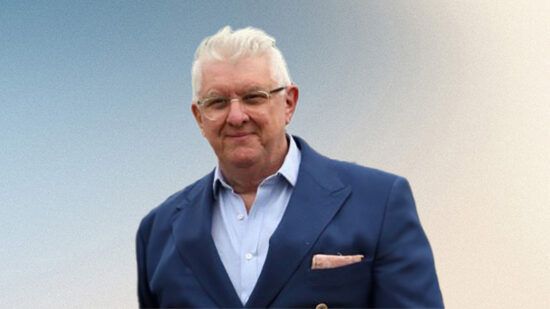While COVID-19 may be accelerating the adoption of sustainable and ethical strategies, those already familiar with aligning their portfolios with their values have been looking to take that one step further — with impact investing.
First, let’s have a look at the difference between those labels.
There has been much debate around the definitions, but in a recent interview with ESG Clarity in Europe, Mike Fox, manager of the Royal London Sustainable Leaders Trust, puts it succinctly. When asked if further education is needed around these labels, he said: “There needs to be a very simple framework as there are a small number of words, but each have a big meaning. Ethical is negative screening, sustainable is positive screening, responsible investment is broad ESG integration, and impact, in my view, is giving capital to projects that wouldn’t get the money otherwise.”
Where philanthropy is the wealthy promoting the welfare of others with generous cash donations, impact investing is using portfolio pots of any size for good, without sacrificing investment returns.
Where ESG investing is placing cash with companies that are focused on improving environmental, social and governance efforts in the corporate world, impact investing is using that cash to ensure it has a positive ‘impact.’
In the grand scheme of things, the term impact investing is relatively new.
Wealth manager Tribe Impact Capital was set up in the UK four years ago, to encourage clients to have a closer relationship with the ‘impact’ their investments can have.
“Setting up this company back then was truly anticipating the direction of travel for impact investing,” said chief investment officer Fred Kooij, who joined the firm last year.
[More: Advisers should aspire to the endowment investment model]
He adds that until recently “people were detached from their capital” and observed “disappointing behaviour” in the corporate world with “zero sum changing, no sense of collaboration, and a quarterly focus”. In short, he says companies are missing the point of serving stakeholders, resulting in a virtuous circle.
However, as previously mentioned, just as ESG investing has surged in 2020, interest in impact has also been piqued.
Companies are thinking about their culture, the place they have in society and how they future proof their business, in light of the pandemic that has brought businesses and economies to a standstill around the globe.
“The crisis has been an accelerant of that realization and focus on sustainability,” Kooij said. “We are gathering more and more evidence that the market sell-off could mark a catalytic moment in the reassessment of the role impact investment can, and should, be playing.”
Not only is impact investing being put firmly on investors’ agendas, we are on the cusp of something huge, according to businessman and founder of venture capitalist firm APAX Partners Sir Ronald Cohen.
In his book Impact: Reshaping Capitalism to Drive Real Change, he says we are on the brink of an “impact revolution” comparable to the technology revolution of the 20th century, that will transform the economic system, and bring solutions to the world’s biggest social and environmental projects.
The book presents an inspiring manifesto showing that “changing the world and making a profit can go hand in hand” and forecasts a future where companies shift away from focusing on profits and risk-return to incorporating impact investment.
For Sir Cohen, there is simply no other choice, we are already on a slippery slope.
“Today, the gap between the rich and poor has widened massively. Inequality is causing huge migration from poorer countries, especially in Africa, to richer countries in Europe, with people risking their lives to cross the sea in flimsy rubber boats in search of better lives.
“Things cannot continue as they are. As inequality surges in developed and developing countries alike, social tensions rise and those who have been left behind feel that they will be permanently stuck there. Our system does not seem fair to them, and so they rebel against it.
“At the same time, environmental challenges threaten the quality of life on the planet and possibly its very existence.”
He continues that our current economic system cannot correct this threat and governments do not have the means to cope, nor are they very innovative.
Sir Cohen identifies a new system; impact capitalism, which aligns the private sector with governments to work in harmony to harness capital and innovation to solve social and environmental issues.
[More: Q&A: Harvard impact investing expert on proposed ESG rule]
In an interview with ESG Clarity Europe, Cohen says the COVID-19 crisis will push governments and investors to embrace this concept as we look to rebuild economies and society from one of the biggest hits in a generation.
“We will come out of this crisis with governments that are more strapped for cash then they were going in, they have been borrowing giant amounts of debt. We are going to have budget cuts and the most vulnerable people in society will suffer.
“Bringing in investors will help create solutions for our social as well as our massive environmental challenges. This will become a greater priority,” he said.
At the start of the crisis, we saw many companies step up in terms of directing their efforts towards aiding those in greater need. If they haven’t already done so companies should be taking this time to re-prioritise their next steps. As Tribe Impact Capital’s Kooij puts it: “The current COVID-19 pandemic should act as a catalyst for companies to re-cast their systemic role and responsibility, or investors will quickly recognize that companies who don’t understand this will, at best, have significant additional costs coming or, at worst, fail to respond and damage their long-term competitiveness.”
While it would be comforting to believe the tragedies seen over the past six months around the world will push corporates and investors down the path of impact investing, the proof will be in the pudding.
Natalie Kenway is the editor of ESG Clarity at Last Word Media.








